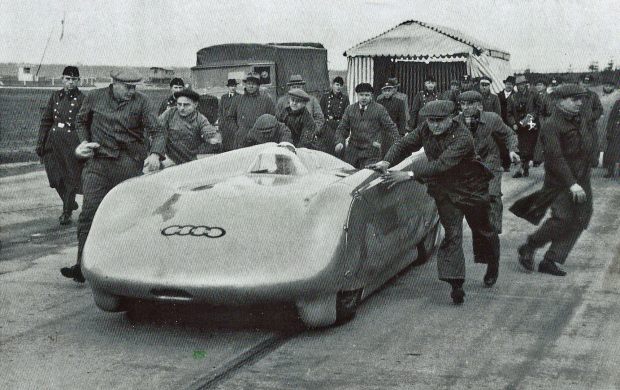It looks like Audi will enter Formula One in 2026 now that they have committed to a takeover of the Sauber Team. They will complete their purchase of the team and continue with their preparations for 2026. This comes after months of speculation over the company’s commitment to the F1 project, mostly due to key backers leaving their roles within the Volkswagen Group.
So Sauber will become Audi with a bespoke engine from the manufacturer. This is similar to the arrangement Sauber had with BMW twenty years ago, but how will it work this time? The Volkswagen Group is one of the world’s largest auto manufacturers and is dominant in Europe. They have the money, people, and technology to succeed; as they have in other forms of motorsport. But getting all the pieces working together and succeeding in a highly competitive series like F1 will be a challenge.
Geography will make it even more difficult.
The center of Formula One is in the Midlands in the UK. Most of the teams, many of the suppliers, and the vast majority of research is done within about an hour’s drive of the Silverstone Circuit. Teams that aren’t based in “Motorsports Valley” will be at a disadvantage to those who are. The infrastructure, both in terms of hardware and people, is why most of the successful Formula One team have been based in England.
Consider the outcomes of two different companies, Mercedes and Toyota.
Toyota is a global behemoth and at times has committed significant resources to auto racing. They’ve been successful in some series as well, most notably Prototype racing and Rallying. When they decided to enter Formula One, no expense was spared. The went on a hiring spree to get the best talent they could and ensured that their facilities were second to none. They even hired some talented drivers and experienced racing personnel. Toyota’s F1 team had more than enough resources to succeed.
Except they didn’t, partially because their team was based in…Germany.
While this made sense from a corporate standpoint (that is where their European operations were based), it proved a challenge in other aspects. Many of the experienced and talented people they needed were in the UK and moving to Germany would be daunting. Few did and Toyota had to rely on their in-house staff to fill many of the roles within the Formula One team. That lack of experience showed on the race track and after hundreds of millions of dollars, Toyota ended their involvement and shut down the team.
Mercedes is another large auto manufacturer, albeit not as large as Toyota. However, they went about their Formula One entry a bit differently. They started off as an engine manufacturer by buying-out Ilmor and creating Mercedes High Performance Power Train (HPPT). Ilmor already had a engine that was on the grid and also had success building IndyCar engines for Chevrolet. Plus, Ilmor was based in the UK and located in Motorsports Valley. For many years, Mercedes was only an engine supplier; most notably to McLaren.
Later, when they decided to enter as a team; Mercedes purchased the Brawn Grand Prix team. This came with all the people and facilities necessary to run a competitive team…based in England. It took a while for the new ownership to gel and to get all the pieces in place to win again but they soon became a dominant team. This was largely possible because the team already had experienced people working for them. When additional money flowed in from Mercedes, they could hire additional staff who lived in Motorsports Valley and put them to work quickly. German money with British expertise proved a formidable combination.
The key is to have your team based in the Midlands where you can take advantage of all the supporting infrastructure already present.
For Sauber and Audi, they face the challenge of going up against the British-based teams from afar. Switzerland is a safe, beautiful, and stable country but it simply lacks the depth of motorsports talent that the UK has. Germany has outstanding engineering and technical talent along with a heritage of manufacturing excellence, but getting that to translate into F1 success is a challenge. Winning in Prototypes and Rallying is one thing, winning in Formula One is another matter entirely. Therefore, Audi is at a disadvantage even before they start.
This doesn’t mean that they can’t succeed, both Sauber and Audi have won championships in other series in the past. They know how to win as well as how to produce competitive machinery to their race teams. In a way, Sauber is like Ferrari in that they are geographically remote from the heartland of motorsport yet are a competent outfit. Given time and money, the Sauber/Audi combination can improve. The challenge will be evolving from a solid mid-field team into a top-tier one though.

Credit: Bernd Rosemeyer Memorial

